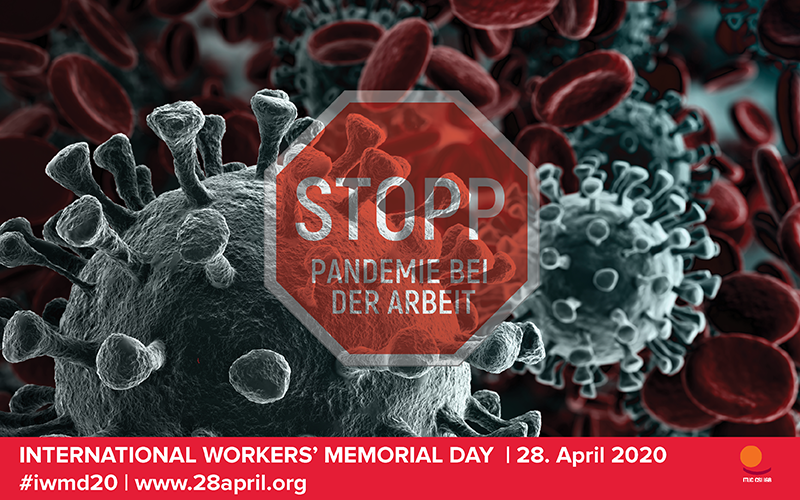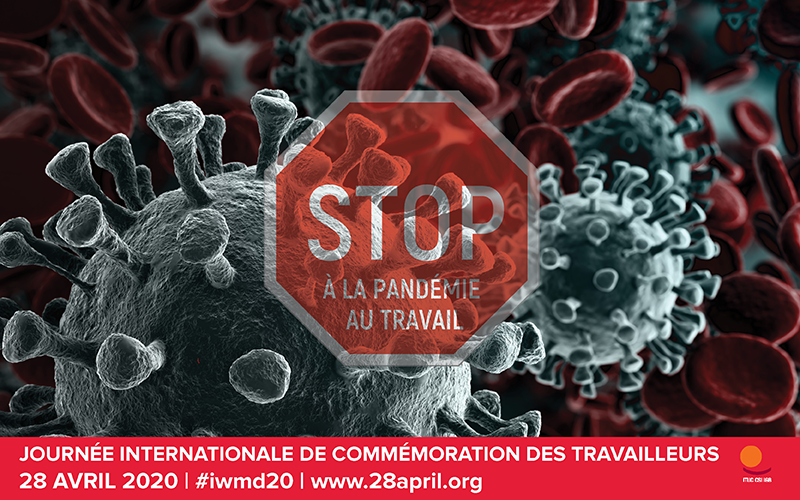TUC briefing
- Unionise
If you haven’t already, join a union. If you’ve already joined, organise. If that means in isolation, so be it – invite colleagues to a video call or WhatsApp group. Regardless of how big your union is, or whether it’s recognised or not, you should be having union meetings about coronavirus. Whether it’s redundancy, pay or PPE, every single worker has something to negotiate right now.
- Audit your contract
Check your contracts and staff handbooks for relevant clauses to clarify your rights and responsibilities. You may have questions around working from home, the sickness management policy, maternity rights and other entitlements, so carry out an audit of yours and your colleagues contracts to see where you stand. Make sure you’re including any agency workers in that as they may have very different terms and conditions.
If you think your employer is breaching your contract, or if they are asking you to go in when it is against government or medical advice, contact your union’s legal teams now.
- Demand to be consulted
If your bosses are drawing up policies around the response to coronavirus, make sure they’re speaking to the union. Employers have a legal duty to consult established health and safety reps and committee, and reps have the right to play an active role in risk assessments.
- Fight for 100%
Across the country, ‘furloughed’ workers on the government’s Jobs Retention Scheme are going to be faced with the possibility of a 20% cut in pay unless their employer agrees to top up the government’s wage subsidy. Other workers affected by school closures are faced with unpaid parental leave as they take time to care for their kids. This is a huge battle and unions are playing a major role in negotiating in workplaces.
– Watch our webinar on wage subsidy.
– Read our blog What are the rules if you’re temporarily laid off?
- Shame bad bosses
Employers cutting pay, laying people off, or opening their workplace without the necessary distancing or hygiene measures need to be called out. For especially hostile bosses, public pressure from the outside can support union organising on the inside. Campaigns like #BoycottWetherspoons ran by BFAWU members or #ShutTheSites by Unite activists can threaten the reputational damage of businesses and force a U-turn.
– If you have concerns about how your employer is responding to coronavirus, please tell us.
- Demand Safety
Bosses need to take seriously the calls for distancing, cleanliness and hygiene. The law is clear on the welfare provisions you should have access to. We need sufficient personal protective equipment (PPE) and testing to front-line workers – especially health and social care. More people will die if this call is not met. We need the government to urgently issue scientific advice on PPE to all key workers, direct enforcement agencies to take appropriate action – and to ensure those who flout to law are penalised. Read our blog Bosses who fail to protect their workers must pay the penalty.
If you are working from home, you still need to think about safe working conditions. Repetitive strain injury is a serious workplace hazard, and unions should demand no worker is out of pocket from purchasing equipment to support their posture etc.
- Support retired members
Many trade union members already been involved in setting up and supporting mutual aid groups which demonstrate the strength and solidarity of our movement. Many unions have retired members branches, whose members may not be as plugged in to online channels but may well fall into the more vulnerable category. Reach out to branches and ask what kind of work your union members can be doing to bring support to them.
- Keep in touch
It’s important to maintain lines of communication both with management and with each other. At a time when many of us are working in isolation, it’s easier for bosses to play divide and rule. Guard against it and keep in touch regularly, reporting any new developments. For your own mental health, too, maintaining a network of colleagues who you can check in with will help bring some familiarity to your day.
- Take action
We may not be able to hold protests and rallies at the moment, but workers can still take action. Last Friday saw one union branch walk off the job over safety concerns as bosses refused to close the non-essential workplace. In Ireland nearly 1,000 union members walked off a food production site protesting the lack of safety measures. Whether it be an open letter, petition or downing of tools, your union will be able to advise you on the best way to take, and to escalate, action.
- Remember them
As the coronavirus crisis carries on, people are dying. Every day. Many of those around the world losing their lives to this virus are the workers on the front-line in health, education, transport, retail and other sectors.
This month is International Workers’ Memorial Day- marked every year on April 28th. Put the date in your diary and sign up to TUC mailing (sign up in the footer below) to be involved in our online memorial. While we mourn those who have passed, we mobilise to ensure not another life is lost to work.
Protecting workers’ safety in the coronavirus pandemic, TUC report, 3 April 2020.
Shelly Asquith
TUC health and safety policy officer


